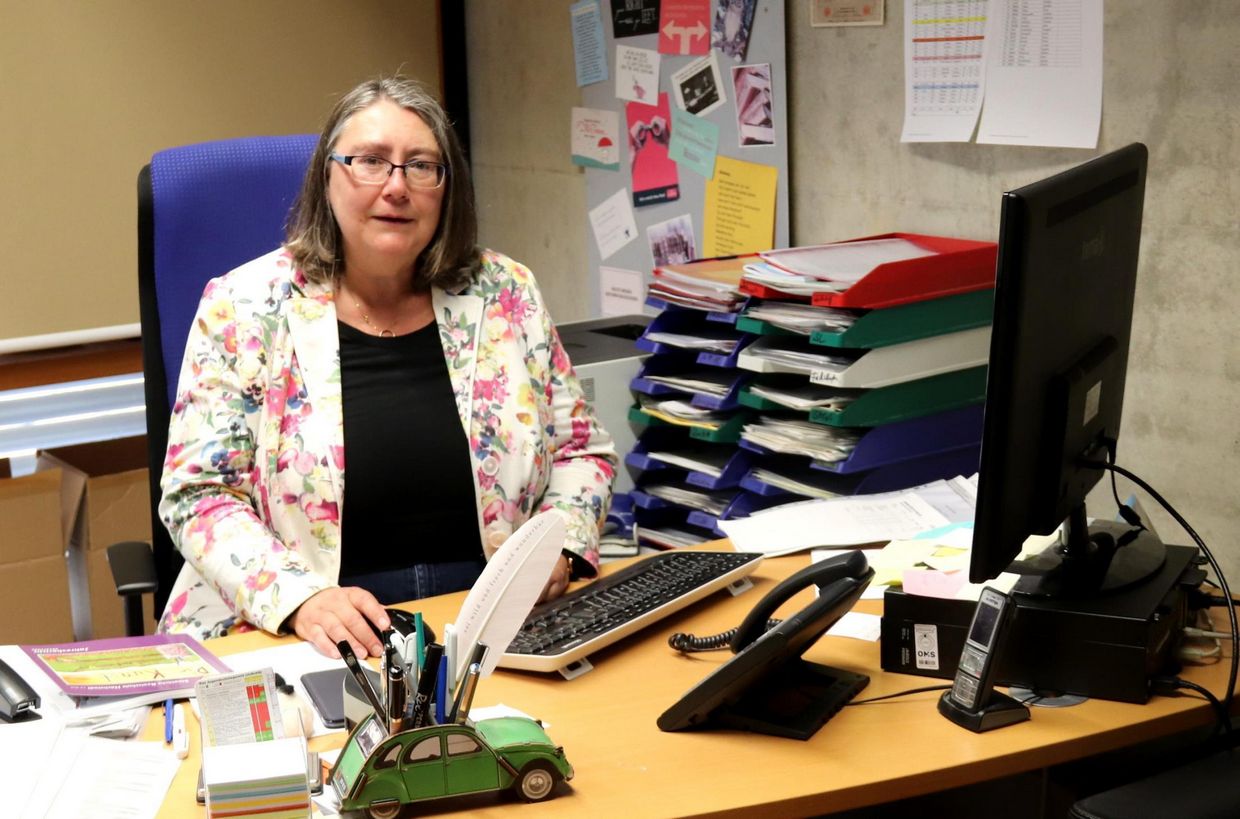Hochstadt secondary school principal retires

The head of the realschule hochstadt, jutta romeis, retired on tuesday during an internal teachers' conference with the district administrator, the mayor, her husband and her brother. The FT met her for a talk.
Why did you choose teaching as your profession? ?
Jutta romeis: i had good role models.
What drew you to hochstadt secondary school and when did you start working here??
Since the 15. February 2014 i am a secondary school principal in hochstadt. I think hochstadt is a wonderful little town and has just the right infrastructure for a secondary school that wants to be integrated into the town and its environment and the region. This is a good situation for the school, the students and the parents – they know each other and it is easier to go the same way.
I was drawn here because the school is a modern, very well-positioned school – bright, open, on a great site in the green, the school climate friendly both inside and out. And what impressed me on my first visit on a sunday, before i applied, was that the walk of fame – an immortalization of a graduating class – all students of all tenth classes of this year named with their respective class leader. Where schoolchildren and teachers are immortalized together, school life is in order, and they get on well together.
What do you like about this school?? What could be better?
At our school, the cooperation in the teachers' lounge is very good, but also the cooperation between teachers, parents and especially the school committees, which support the school at all times, as corona has just shown again. You find open doors, you get support – as a student and also as a teacher. Schoolchildren, teachers and parents are committed, school life is varied and lively, responsibility locally and globally as well as social commitment and civic courage are emphasized, sustainability and environmental considerations are important to us. Schools can and should participate and do so.
There is always room for improvement, and we have already tackled many of the things we noticed that need improvement.
What were your favorite projects?
Learning buros, our self-determined learning (called fuxzeit), learning islands in the corridors, the establishment of our very successful mountain bike club, our christmas euro for "kinderhilfe nepal e.V.", our fundraiser for the one dollar glasses, our ninth grade presentation projects.
I also think it's wonderful that every class has an author reading every school year – reading education is enormously important (i'm a trained bookseller). Every year a musical is performed and a new theater piece always gives us a great evening in the spring of summer. There is a school newspaper, even digital now, and many ags, and we make our own apple juice for the lunch table and our own honey in the bee club.
What was it like working as a principal??
Never boring, always challenging and time-consuming, sometimes very stressful – mostly very fulfilling and enriching. Never before in my life have i learned so much in such a short time as as a principal. Unfortunately, the administrative part of the work is often very high – it would have been better to have more time for the individual.
What about teaching and teaching today??
Of course, the magic word in schools is "digitalization", and we are well supported and equipped by our local authority, the landratsamt. And corona has shown how important that is too. Nevertheless, I believe that the versatility of the offerings is crucial. Every student needs to find something they are good at, something that sustains them and gives them courage. The basics have only seemingly shifted: reading, writing, math, experimenting, nature and the environment, knowledge of the earth and of the past, and especially art, music and sports are of course always the prerequisite for learning and using modern methods in a modern world.
And yes, we teach bilingual in information technology (voluntary) and in history as part of the language branch.
But to survive in the professional world, we naturally rely on presentation methods, cooperation and results in groups, internet research, self-organized learning and initiative – here, too, corona teaches us that this will be necessary in a global world. The exchange is possible and necessary through modern media in many ways.
I think we're doing a very good job of it at the realschule hochstadt.
How to go on now?
To do many things that were not possible in the past decades due to time constraints: travel with the new camper, time for my rose garden in bamberg – with 800 roses a small rosarium, more time with my husband and with my dog, being creative, the sea, finally dancing and singing again and reading, reading, reading: ,there is no bliss – without books.' the interview was conducted by johanna blum.
